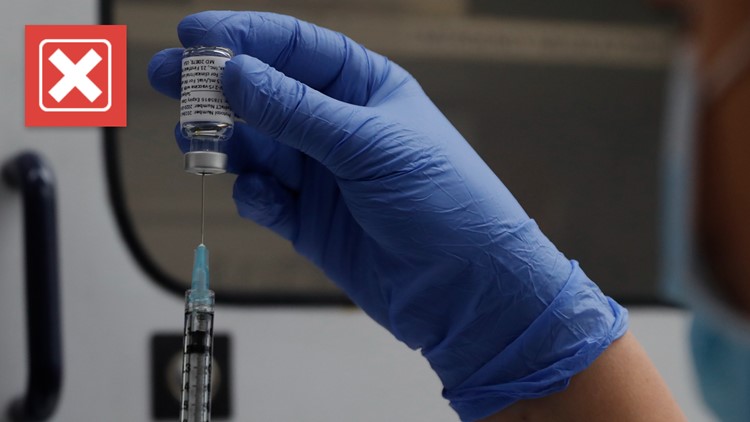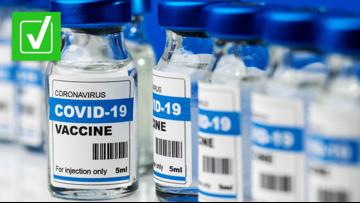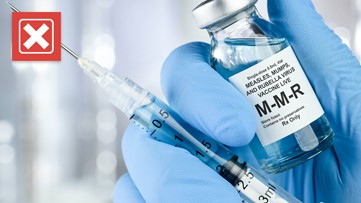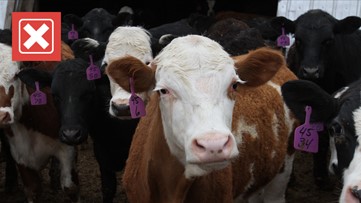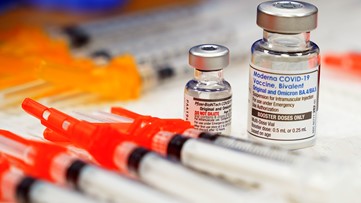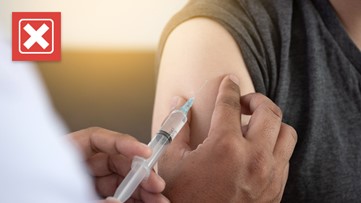The Centers for Disease Control and Prevention (CDC) recently recommended a new option for COVID-19 shots from Novavax, which uses more traditional vaccine technology than the other available options.
This comes after the U.S. Food and Drug Administration (FDA) also authorized emergency use of the Novavax vaccine.
Since the approval was announced, people have been asking whether they can get the Novavax vaccine as a COVID-19 booster shot, Google Trends data show.
THE QUESTION
Is the Novavax COVID-19 vaccine authorized as a booster shot?
THE SOURCES
THE ANSWER
No, the Novavax COVID-19 vaccine isn’t authorized as a booster shot, but clinical trials are underway.
WHAT WE FOUND
In its emergency use authorization announcement, the FDA says Novavax’s COVID-19 vaccine is administered as a two-dose primary series for people aged 18 and older, with each shot given three weeks apart.
The CDC also recommended the vaccine as a two-dose primary series.
A primary series is defined by the CDC as “initial vaccination,” which can range from a single dose – like the Johnson & Johnson COVID-19 vaccine – to three doses for some immunocompromised people. A booster shot is a dose administered later to “enhance or restore protection which might have waned over time after primary series vaccination,” the CDC says.
The CDC and American Medical Association both say Novavax’s vaccine isn’t authorized for use as a COVID-19 booster dose at this time.
Coronavirus vaccines from Pfizer, Moderna and Johnson & Johnson are currently authorized for use as booster doses, depending on a person’s age. The most current information about booster shots is available on the CDC’s website.
Novavax is conducting a clinical trial enrolling youth ages 12 to 17 years old, and evaluating a third shot – or booster dose – in both adults and adolescents, the National Institutes of Health (NIH) and Biomedical Advanced Research and Development Authority (BARDA) said in a joint statement.
The National Institute of Allergy and Infectious Diseases (NIAID) is also studying Novavax’s COVID-19 vaccine in a “mix-and-match” clinical trial, where fully vaccinated adult volunteers receive doses of different vaccines to gather safety and immune response data.
In late May, Novavax announced that it would begin phase 3 of another trial to determine the effectiveness of its omicron strain vaccine as a booster dose in producing better immune responses to the omicron variant compared to its newly authorized vaccine without a booster. The trial participants include people who have received either a two-dose primary series or three-dose booster series of an mRNA vaccine.
The company said initial results from the clinical trial are expected in the second half of 2022.
What’s the difference between Novavax and other COVID vaccines?
Novavax said in a statement on July 1 that clinical data show its authorized vaccine “offers broad immune responses against circulating variants,” including omicron subvariants BA.4 and BA.5. The highly contagious and immune-evasive BA.5 subvariant is now dominant in the U.S.
In its recommendation of the vaccine, the CDC says Novavax is providing a “more familiar type of COVID-19 vaccine technology for adults.”
Unlike mRNA COVID-19 vaccines, like Pfizer and Moderna, Novavax “directly injects a version of the spike protein, along with another ingredient that also stimulates the immune system, into the body,” Yale Medicine says. The version of the spike protein within the vaccine has been formulated in a lab; it does not have genetic material inside of it and cannot cause disease.
According to NIAID Director Anthony Fauci, M.D., other vaccines in routine use in the U.S., such as the hepatitis B vaccine, use the same protein-based platform.
Messenger RNA (mRNA) vaccines, on the other hand, “teach our cells how to make a protein that will trigger an immune response inside our bodies.” Like some other vaccines, those that utilize mRNA technology – including the Pfizer and Moderna COVID-19 vaccines – do not put a “weakened or inactivated germ” into the body, and instead use mRNA created in a lab, according to the CDC.

